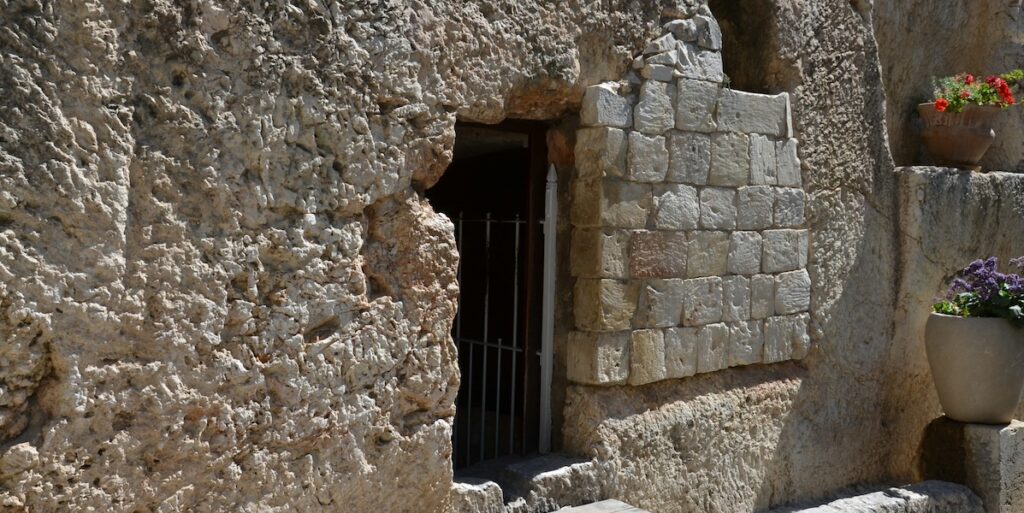Thanksgiving is this week. And so it is the season of giving thanks.
But what if you don’t feel like giving thanks?
After all, wars are waging throughout the world. In fact, according to multiple websites, there are at least 32 violent conflicts happening in the world. Israel and Palestine have us all tied up in knots of anxiety. Our politicians are challenging people to fist-fights and even hitting one another. We aren’t really beyond COVID, but COVID reminded us of the impermanence of life. Inflation is hurting our wallets. I saw a gas station in Portland yesterday selling gas for $4.99 a gallon. I have a dear parishioner suffering in her last days from cancer. The list goes on.
And so if you aren’t all that thankful this season, I can’t blame you.
Toxic Thankfulness
But I recently came across a video by Dr. Diana Butler Bass. It’s titled, “Jesus the Ingrate: The Subversive Power of Gratitude.”
She refers to the oldest book in the New Testament, a letter called 1 Thessalonians. In that letter, Paul writes in 5:19, “give thanks in all circumstances, for this is God’s will for you in Christ Jesus.”
This passage is a bit of a cliche in Christian circles. It’s one of those verses that appears on posters, throw pillows, and greeting cards.
But that verse can sometimes feel oppressive to me. It reminds me of the phrase “toxic positivity,” which is the idea that you must always be positive and shove any negative feelings down so that you can remain positive at all times. But without being able to freely express our negative feelings, they end up boiling over and can cause great damage.
I think the same can be said for the emphasis on thankfulness.
This season can push a “toxic thankfulness” onto us. “Don’t express your anger or despair. Just be thankful in all circumstances. Oh, you just lost your job? Give thanks! You have a cancer diagnosis. Another great opportunity to give thanks! You just learned of another thousand deaths in a region of the world? THANK YOU, JESUS!”
No. That’s not what we are talking about when it comes to thankfulness. There are things that are wrong in the world. And we should struggle against those things, not give thanks for them.
Jesus the Ingrate
In her video, Bass states that “Jesus was an ingrate.” He was an ingrate to religious, political, and economic systems of exploitation.
As always, she situates her thesis in the historical context. I find this so helpful to understanding Jesus.
Jesus and his people lived in occupied territory. The Roman Empire dominated the region, including the region’s economic system.
Gratitude comes from the latin word gratus. And gratus helped to run the Roman economic system.
The Roman Empire’s Pyramid Scheme
The Roman Empire functioned like a pyramid. The powerful few at the top had all the wealth, while the many at the bottom suffered from poverty. (You may know of similar systems…) The empire was able to sustain this economic pyramid in two ways.
First, through violence. Second, through giving people just enough to survive. This was the first version of trickle down economics, which benefits the few at the top while leaving those at the bottom destitute.
The wealthy at the top of the pyramid were to pass some benefits like food and relative safety down to the bottom of the pyramid. The poor at the bottom were to pass their “thanks” back up to the top. This “thanks” included tithes, taxes, and loyalty to the systems that kept them in poverty.
This pyramid was the gratus system of the Roman Empire.
And Jesus didn’t play by its rules. When it came to this system of gratitude, Jesus was an ingrate.
Bass refers to the story of Zaccheaus, a wealthy tax collector who played by the Roman system of gratus to earn his riches. Jesus called him to a different system – one that reflected God’s generosity rather than Rome’s.
And there are many other stories where Jesus challenges the Roman economic system. Take Jesus overturning the tables in the Temple, for example.
The religious, economic, and political elite of the time benefited by supporting Rome’s economy. The Temple system was infected by this exploitation. Jesus entered the Temple and quoted the prophets Isaiah and Jeremiah as he yelled,
“’My house shall be called a house of prayer for all the nations.’ But you have made it a den of robbers.”
It’s Faithful to Not Be Thankful for Systems of Violence and Exploitation
Jesus did not give thanks for all things. He saw economic injustice and called it out because he knew it went against God’s desire for all people to live in peace and harmony.
So, in this sense, Jesus was an ingrate toward the gratus system of the Roman Empire. He sought to transform that system into a new system where all people have their needs met and can flourish.
So if this Thanksgiving you aren’t feeling grateful for the things that are wrong in the world, you are in good company. Jesus wasn’t grateful for them. And the prophets before him weren’t grateful for them, either. Along with the prophets and Jesus, let us work for better systems where all people can flourish in peace and harmony.




